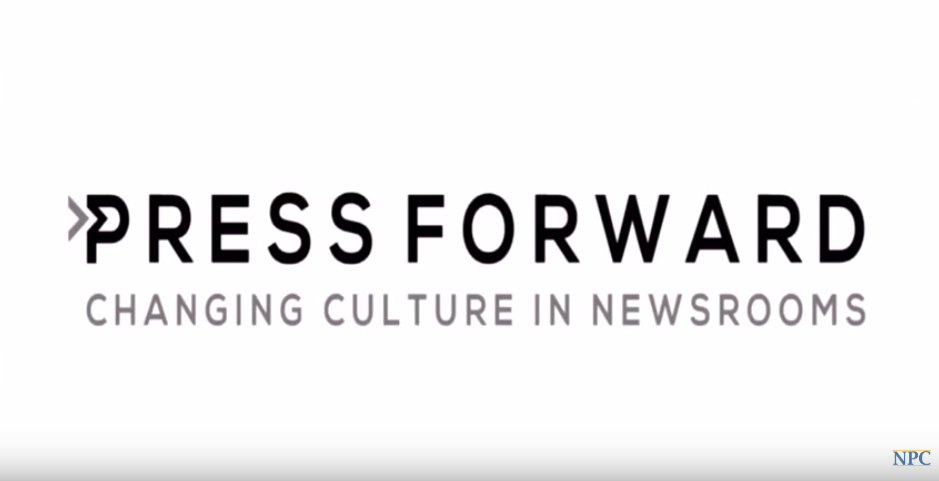When faced with sexual harassment in the workplace, most of us don’t have the training to know what to do or say when it happens. Many times we are shocked and rendered speechless, or comply with their requests because we don’t know how to say “no” to a person who holds the power over our careers. Center for Ethical Leadership in the Media Board of Advisor and New York Times best-selling author Gretchen Carlson provides detailed and strategic advice in her best-selling book Be Fierce: Stop Harassment and Take Your Power Back on what to do if you find yourself in this situation. Her entire book is full of helpful information on this topic. With Gretchen’s permission, we have excerpted her 12-step approach to documenting and reporting illegal and abusive behavior. Read these steps carefully…Gretchen offers critical words of wisdom, beginning with an important mantra.
- I have a right to fulfill my dreams.
- I have a right to pursue any career I choose.
- I have a right to excel without malicious interference.
- I have a right to be treated with respect in my professional and personal lives.
- I have a right not to be touched unless I want to be touched.
- I have a right to work in an environment free of visuals that demean and objectify women.
- I have a right not to be stalked.
- I have a right to be called by my name, not diminutive nicknames.
- I have a right to work without hearing comments about my body or appearance.
- I have a right to not be pestered for dates when I make it clear that I have no interest.
- I have a right to advance up the ladder based on my hard work and abilities.
- I have a right to speak out without fear of retaliation or intimidation when I am demeaned, harassed or assaulted.
- I have a right to be myself, not be defined by stereotypes.
1. EYES WIDE OPEN
Gretchen begins by stressing the importance of educating yourself about the workplace before you even accept a position, doing so with your “Eyes Wide Open.” This means knowing your rights under the law and your rights within the company. Here are the things to consider:
What can you learn about the company? Do you know people who have worked there and can give you a fair account of the working environment? Has the company been in the news for workplace violations or employee complaints?
When you take a tour of the workplace, what do you notice? What’s the mood? Is there a diverse staff makeup? Are there women managers?
Carefully read your contract, and ask questions about things you don’t understand. Make a note if there is a required arbitration clause for complaints.
Carefully read the employee handbook, if there is one. Some companies have very specific steps to take if you experience sexual harassment, and your case is jeopardized if you don’t take them.
The larger point is, always go into a job (even an intern) knowing where you are, what the company stands for, what it thinks of you, what it expects of you, and what your rights are.
- DOCUMENT PROBLEMS
The first time you experience inappropriate behavior, even if it seems minor, start writing it down in a journal. Do not keep this journal on your work computer or in your office where your employer can gain access. In addition, send emails to yourself, detailing in narrative fashion your experiences. This also creates a contemporaneous record. If the harasser is texting, emailing, or sending cards or notes to you, keep copies.
Our friends at Better Brave have created printable forms to help you with documentation depending on whether you are currently working, were terminated, or resigned.
- TAKE OFFENSE
Forget about staying silent and hoping it will blow over; that stance sends an unintended message that the behavior is OK. Some harassment situations, whether on the street or in the office, can be stopped by a confident retort:
- “My name is ____. Please don’t call me honey.”
- “That makes me uncomfortable.”
- “I’m not interested in dating you. Don’t ask me again.”
- “Stop touching me.”
- “Back off.”
- “That wasn’t funny.”
- “Stop staring.”
- “You’re in my space.”
- “Don’t rub my shoulders”
- “That’s offensive.”
- “No!”
- “Don’t!”
- “Stop it!”
- “Don’t ever speak that way to me again.”
- “You need to leave.”
- “You’re embarrassing yourself.”
- “That’s harassment.”
- You have a right to say what you mean, and to be heard.
I realize that many women may be nervous about saying anything at all. And they may be right to be, because let’s face it: not every person who is confronted, even in a polite way, is going to respond well, especially if the power imbalance is great.
This step in Gretchen’s book resonated with the members of Center for Ethical Leadership in the Media because the majority of us did not know what to say or do when faced with harassment since it was so unexpected, but wish we had this list committed to memory. If in the moment of becoming a victim of harassment you are unable to confront the harasser directly, try to make it clear that the conduct is unwanted in some way.
- TELL PEOPLE YOU TRUST
Now, more than ever, you need a support system. It’s an absolute necessity! Telling others about your experience will make you feel stronger and heighten your resolve. One of the most compelling arguments for women who have come forward even years later was the fact that they told people when it happened.
I realize that in some toxic company cultures, speaking to anyone can feel dangerous. Who can you trust? Who has your back? It’s scary to go out on a limb.
Be observant. Does the harasser put other women you work with in compromising positions, or treat them poorly? Approach these women about their experiences. Say, “I saw what Bill said to you this morning. I thought it was awful. Are you doing OK?” Let them know they have an ally in you, and they might become your ally.
- TAPE INTERACTIONS…IF YOU CAN
A recording could be the gold-standard of proof. However, the use of a tape recorder is a very tricky matter, especially legally. The best way to find out if you have the legal right to make on-party recordings is to check the laws in your state. They vary. Currently, there are 11 states in which it is illegal to record a conversation without the consent of all parties. In some cases it is legal to make a one-party recording, but such a recording is not admissible as evidence in court. Even if you live in a state where one-party recording is legal, your company may have a policy that makes surreptitious recordings a fireable offense. Before you consider doing this, be sure to check the law and your company’s policy.
- KNOW THE POLICIES
Don’t get blindsided by failing to follow the complaint procedure established by your company–98 percent of companies have them. Follow it to the letter. There’s an important reason for that: The Supreme Court has ruled that if a company has a procedure in place for reporting sexual harassment, the company cannot be expected to fix the situation unless an employee reports it. The court has ruled that companies have a right to try to address the situation, and if you deny them that right, you might not be able to bring a lawsuit.
- MAKE IT OFFICIAL
In most companies, employees are required to bring a complaint to HR if they expect action. However, as we’ve discussed, this can be a scary prospect. Many employees fear that coming forward will just make things worse, and in cases, it does.
Make sure you have a plan before going to HR or telling a supervisor or company counsel. Often, women take it and take and take, and then finally erupt and go to HR before they’ve thought things through. One you make a claim, you can’t go back and collect evidence and create a plan. And if you have an arbitration clause in your contract, the minute you make a claim, the company will move to put you in arbitration as soon as possible to keep everything under wraps.
Broken reporting systems can sometimes make things worse for a victim with little to no repercussions for the accused. Unfortunately, however, this is a necessary step in this process and it is important to follow your policy manual to the tee when reporting. There is much room for improvement in creating effective reporting systems; Center for Ethical Leadership in the Media plans to research and deliver concrete solutions for positive change in this regard.
- AVOID TRAPS
In this step, Gretchen explains how companies will sometimes try to set up meetings between the accuser and accused to “clear the air.” “It sends the message that this is a conflict that is up to both parties to equally work out, rather than an complaint that one of them has done something wrong. These traps and unhelpful responses that, in effect, punish the victim all over again can happen even in the large companies.”
- DOCUMENT ANY RETALIATION
There are two kinds of retaliation: direct and environmental. Direct retaliation occurs when people in authority take negative actions against you because you complained or refused inappropriate advances. These actions can include giving poor performance evaluations, demoting you or transferring you to a less desirable job, being physically or verbally abusive, threatening you, turning others against you, spreading lies about you or even firing you….
Environmental retaliation is harder to prove and more difficult to stop. You can’t make coworkers like or talk to you, especially if they think shutting you out improves their own job security. Even when coworkers sympathize and privately offer support, many of them just want to keep their heads down and not get involved. If you have supporters on the team, enlist them to help you break through the freeze.
Retaliation of any sort is illegal and should not be allowed to persist. If you are supporting a victim of harassment or abuse, please direct them to this helpful guide from Better Brave advice and guidance.
- GO LEGAL
Most lawyers I’ve spoken to advise women to retain a lawyer before they make a complaint. There is no question that an experienced sexual harassment attorney can help you avoid the many pitfalls you face when you go it alone against your company. However, lawyers cost money, and many of the women I’ve spoken to were able to engage a lawyer only when they knew they were filing a lawsuit and were able to make a contingency agreement.
- SECURE YOUR RIGHT TO SUE
There is one more hurdle to cross. Before you can bring a discrimination or harassment lawsuit under federal law, you must file an administrative charge with the federal Equal Employment Opportunity Commission or a similar state agency. This is a legal requirement: If you file a lawsuit without first having filed a charge (called “exhausting” your administrative remedies, legally speaking), your lawsuit will be thrown out. Depending on your state, you have 180 or 300 days from the date of the sexual harassment incident(s) to file. So, even if you’re not sure you’re going to file a lawsuit, the clock is ticking.
If you think you are interested in filing a lawsuit, now or in the future, be sure to consult an attorney in your area for clarity on your local laws because, as Gretchen noted, the clock really is ticking. Keep in mind you may be eligible for legal assistance from TIME’S UP™ Legal Defense Fund.
- BE THE CHANGE
In this final step Gretchen advocates for all of us to stand up and push for change in our workplaces.
“True workplace change starts with a top-down commitment to equality and a positive workplace culture,” she writes. Center for Ethical Leadership in the Media aims to empower journalists and newsroom leaders to“be the change.” But the process requires day-to-day commitment and a clear understanding of problems that need to be tackled. To that end we will be researching means for effective cultural change in newsrooms and working through our other initiatives until there is no longer a problem to be solved. Please join us in this journey to “be the change” and Center for Ethical Leadership in the Media.
Finally, if you are in need of immediate help for a case of sexual assault, please call the National Sexual Assault Hotline 1-800-656-HOPE (4673).







